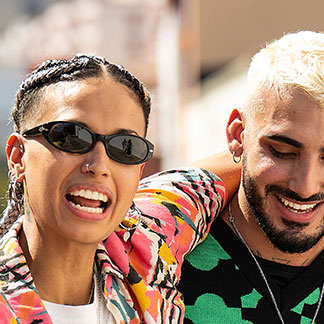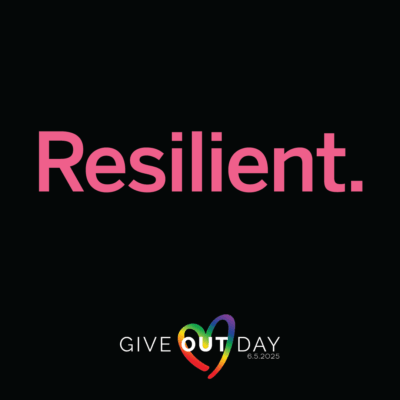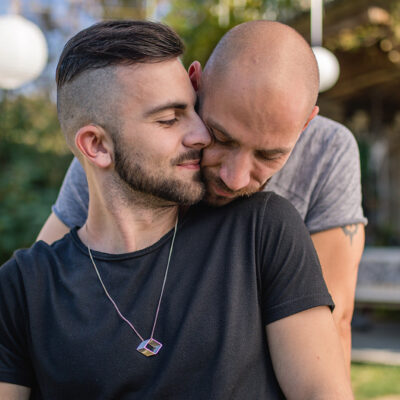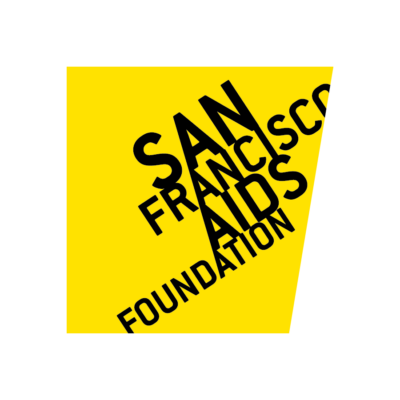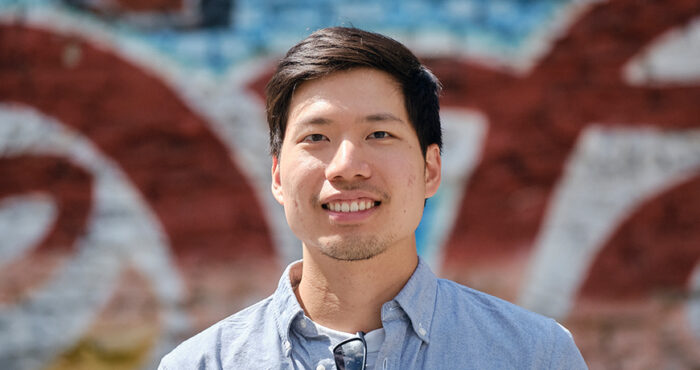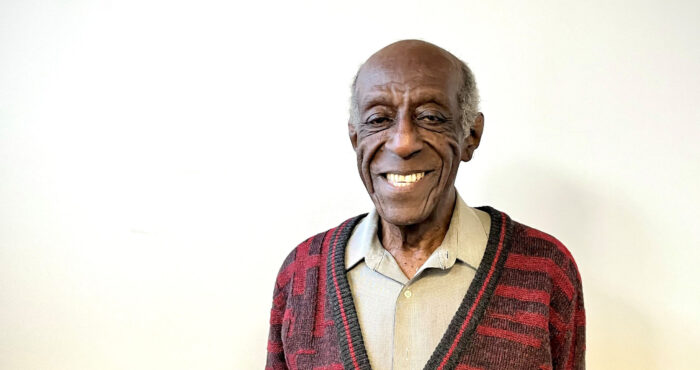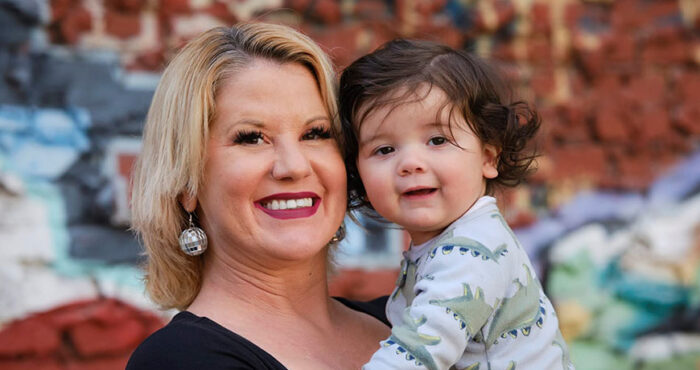“I found my calling through the Black Health Clinical Internship”
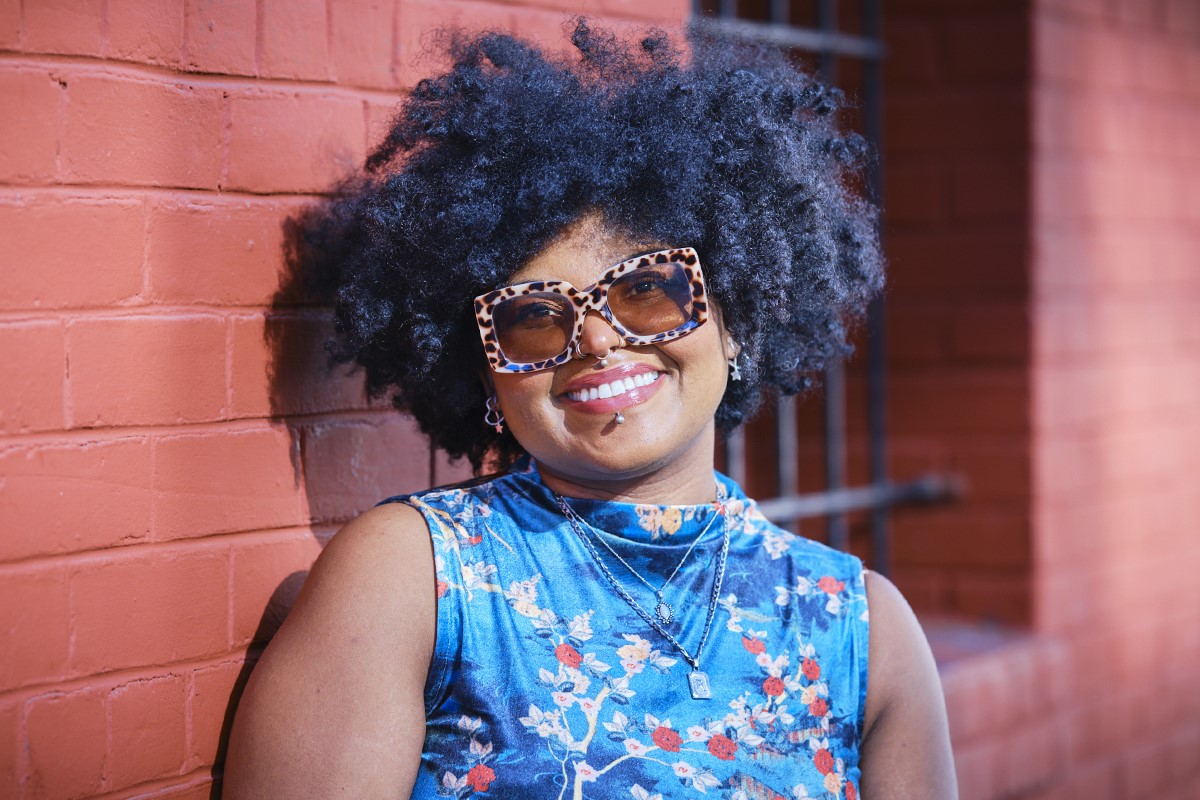
Ro Flynn found community–and their life’s calling–after happening upon an advertisement for the Black Health Clinical Internship program at San Francisco AIDS Foundation. After completing this four-month comprehensive training program that involved shadowing and learning about all aspects of nonprofit programming and implementation, Ro now is employed full time as a program coordinator at Rafiki Coalition, a collaborating agency linked to SFAF through its Health Access Point (HAP) work.
“I wanted to make sure that–no matter what I end up doing–it ends up benefiting people’s lives in some way,” said Flynn. “I was able to find that through the clinical internship.”
Flynn is originally from Atlanta, which they described as a “Black gay mecca.” But following the pandemic, Flynn was in search of more meaningful connection to the community. And after visiting their sister, who had moved to the Bay Area, Flynn decided to try to make the same change.
“I fell in love with all the Bay had to offer when I visited my sister,” they said. “And as a Black genderqueer person–I was so isolated from my community coming out of the pandemic. Moving to the Bay Area, I did feel like there was an opportunity to find that community again. And when I saw the internship, a part of me thought – this will be a great step in my professional career. And also a way for me to kind of immerse myself back into Black culture.”
Flynn joined a cohort of other interns in the Spring of 2024. Over four months, they rotated through support roles where they shadowed current staff members at SFAF’s health center in the Castro, at our substance use treatment and counseling program Stonewall, at our harm reduction center, and with our community programming for Black and African Americans, transgender and non-binary communities, people over age 50, and Latine community.
Flynn decided the more clinical and health-focused work wasn’t the right fit, but felt right at home with the community support programming offered through the Black Health department.
“HUES stole my heart,” they said. “I think it was my second day of the internship, they mentioned that HUES is the only Black woman-led group for Black women at risk for or living with HIV. And I immediately wanted to find a way to be involved.”
Meeting and seeing the work of the program specialist, Ebony Gordon, was a turning point for Flynn. “She does everything in her power to make sure that people involved in these groups feel supported and cared for. They have a sense of community that just made me want to become a program coordinator too.”
Flynn remembers a cookout the group had as a special and moving experience.
“It was cold outside, so we ended up having to move the group indoors to the office. I remember looking around, and just being surrounded by Black women who were all different ages–elders and younger generations. Everyone was playing card games, board games, talking, laughing, and eating. There was a chance to unwind, and it was in a community of people we felt safe with.”
Toward the end of the internship program, an SFAF staff member alerted Flynn about a job opportunity with Rafiki Coalition. Rafiki is a partner organization to SFAF, as collaborating agencies build up and support a health access point for the Black and African American communities of San Francisco named Umoja HAP.
Flynn applied, went through three interviews, and was hired as a program coordinator supporting the Umoja HAP.
Flynn is proud to be supporting work that improves the lives and health of Black San Franciscans.
“In this City, Black folks are literally ignored,” they explained. “The Umoja HAP work is so important because it gives Black folks the chance to get the care they need, and for it to be actually accessible. So instead of encountering barriers–like, ‘Oh, you need insurance,’ you get a one-stop-shop with holistic care. We have to climb our way out of these health disparities, which is why this type of work is extremely important.”
“Overall, this has been an amazing opportunity,” said Flynn. “It feels like where I’m supposed to be right now.”

